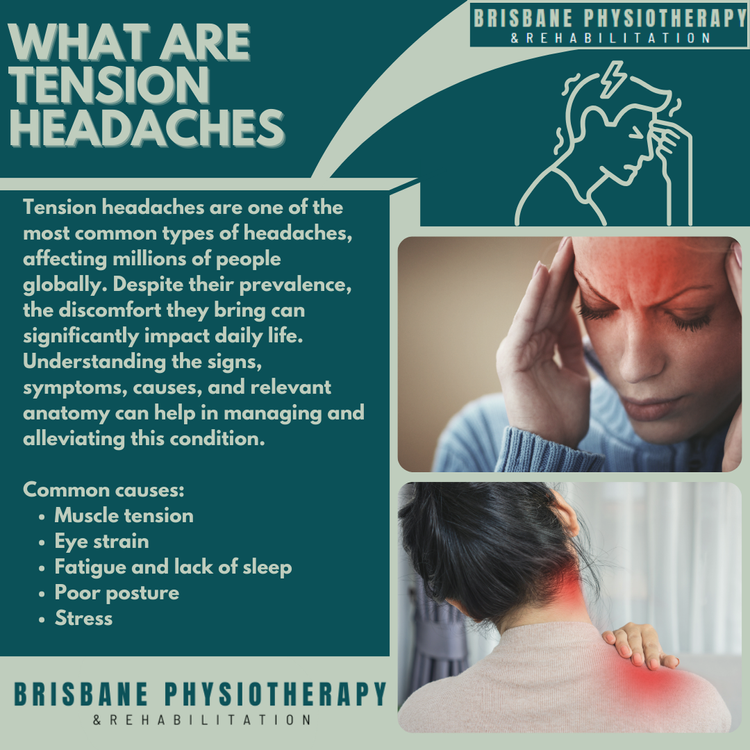
Our Services
The Brisbane Neck and Headache Clinic
Introducing the ‘Brisbane Neck and Headache Clinic’ led by renowned Australian Physiotherapist, Peter Farmer.
Peter has more than 30 years experience in assessing and managing headaches, migraines and neck dysfunction.
Peter completed his Masters Degree focusing on neck-based headaches and has unmatched experience in the assessment and management of this debilitating condition.
Peter works as part of a multi-disciplinary team of GPs, Neurologists and Neurosurgeons to ensure the best outcomes for his patients.
Peter works from our West End clinic and you can book an appointment with him via the link below.
Medical Practitioner Testimonials
-
"I have had the pleasure of working with Peter for the past 15 years, I have referred many patients to him. I have always found him to be extremely knowledgeable in his field, continuously striving to do the best for the patient and providing a holistic experience."
- Neurosurgeon, NSW
-
"I have worked with Peter since I commenced clinical practice in 2015. Peter was initially recommended by another Neurologist as someone with skills in headache and migraine management, and he has never disappointed. Peter has an excellent reputation amongst referring Neurologists and is considered the premiere headache and migraine Physiotherapist."
- Consultant Neurologist, NSW
-
"Peter is without peer, in his area of excellence, being complex cervical vertebral body pathology and associated headaches. Peter is a wonderful communicator, treats people with kindness and care and is just a great general physiotherapist."
- General Practitoner (GP), NSW
Cervicogenic Headaches
What are Cervicogenic Headaches?
Cervicogenic headaches are a type of headache that originates from the cervical spine (neck). Unlike migraines or tension headaches, cervicogenic headaches are secondary headaches, meaning they are caused by an underlying issue in the neck. Identifying the type of neck issue causing the symptoms is the key to providing a direction for treatment.
Cervicogenic Headache Symptoms
The symptoms of cervicogenic headaches typically include pain that starts at the base of the skull and radiates to the front of the head, often affecting one side more than the other. This pain can be accompanied by neck stiffness, reduced range of motion, and tenderness in the neck muscles. Some individuals may also experience dizziness, nausea, or blurred vision.
Causes of Cervicogenic Headache
Cervicogenic headaches are typically related to an injury / irritation of any innervated structure in the upper cervical spine (C1-3) resulting in a type of referred pain in the head. There are also situations where the lower cervical spine or shoulder area can generate cervicogenic headache symptoms. An increased likelihood of experiencing irritation / symptoms can also be associated with underlying issues in the cervical spine such as arthritis or disc degeneration. Postural loading, especially from prolonged use of computers or mobile devices, can also contribute to these headaches. Additionally, whiplash from car accidents or sports injuries can lead to cervicogenic headaches.
Cervicogenic Headache Physiotherapy Treatment
Physiotherapy has been proven to be an effective treatment for cervicogenic headaches. A physiotherapist will conduct a thorough assessment to identify the root cause of the headaches. Research has identified a specific pattern of issues that usually combine to cause the symptoms and understanding the factors that are unique to each individual headache will guide the physiotherapist to create a bespoke treatment pathway. Treatment often includes manual therapy to mobilise the joints and soft tissues, specific exercises to strengthen and stretch the neck muscles, and postural education to prevent recurrence. Dry needling and acupuncture may also be used to alleviate muscle tension. By addressing the underlying cervical issues, physiotherapy can significantly reduce the frequency and intensity of cervicogenic headaches, improving overall quality of life.
Tension Headaches
What are Tension Headaches?
Tension headaches are the most common type of headache, often described as a constant ache or pressure around the head, especially at the temples or back of the head and neck. Unlike migraines, they are not usually associated with visual disturbances, nausea, or vomiting. However, they can cause significant discomfort and interfere with daily activities.
Tension Headache Symptoms
The symptoms of tension type headache typically include pain that is dull or feels like a ‘vice like pressure’ and usually on both sides of the head. This pain can be accompanied by tenderness of the scalp, neck and shoulder muscles.
Tension Headache Causes
Tension headaches are usually caused by muscle tension/tightness, poor postural and neck dysfunction. These can also be magnified by factors such as eye strain, fatigue and stress.
Tension Headache Physiotherapy Treatment
Physiotherapy offers effective treatment options for managing tension headaches. A physiotherapist will assess your posture, muscle tension, and other contributing factors to develop a tailored treatment plan. This may include massage to relieve muscle tightness, stretching exercises to improve flexibility, and strength training to support better posture. Additionally, physiotherapists may provide ergonomic advice to improve your workstation setup, reducing strain on your neck and shoulders.
Migraine Headaches
What are Migraines?
Migraine Symptoms
Migraines are debilitating headaches often accompanied by nausea, sensitivity to light and sound, and visual disturbances. When linked to neck issues, these migraines are known as cervicogenic migraines. The symptoms include throbbing pain starting at the base of the skull, stiffness, and discomfort in the neck. Pain may radiate to the forehead, temples, and behind the eyes, often worsened by certain neck movements or positions.
Causes of Migraine Headaches
Research is ongoing but current evidence suggests that in many individuals an irritation of an area of the brainstem may be involved in the generation of migraine symptoms. This brainstem area also has links to the nerves from the upper cervical spine. Due to this anatomical connection the evidence suggests the link between migraine symptoms and dysfunction neck is bidirectional (can work both ways) meaning that a migraine event can cause neck pain but also that neck dysfunction could increase the likelihood of migraine symptoms. There is often neck pain associated with migraines and determining the specific inter-relationship between neck dysfunction and the migraine symptoms is a key role of the physiotherapist. Importantly, there are also some individuals where the neck does not have a significant role in the generation of migraine symptoms and being able to identify these individuals is imperative so that time and money are not wasted on ineffective treatment (and so that these patients can be advised on alternative treatment pathways or strategies).
Migraine Physiotherapy Treatment
Recent research has found some migraine sufferers have a specific combination of abnormal neck signs and this pattern of dysfunction provides a treatment pathway for these individuals to reduce the likelihood of experiencing migraine. A physiotherapist will assess posture, neck mobility and specific muscular strength and endurance to identify if these signs are present. Treatment plans typically include manual therapy to release tension and improve joint mobility, targeted exercises to strengthen neck and shoulder muscles, and postural education to prevent future strain.
Additionally, techniques like dry needling and acupuncture may be utilised to relieve muscle tightness and reduce pain. By addressing the underlying neck issues, physiotherapy not only alleviates the immediate discomfort but also helps prevent the recurrence of cervicogenic migraines, leading to a significant improvement in quality of life.
Please seek an immediate medical opinion if you have:
A severe headache that comes on suddenly (like a clap of thunder).
A headache that accompanies fever, nausea, vomiting, confusion, seizures, trouble speaking, or significant neck stiffness.
A headache after a head injury (especially if it’s worsening).
A sudden severe headache unlike what you’ve ever experienced.
A headache that worsens over days and changes in pattern.
Common causes of neck pain
Neck pain can be caused by joint, muscular or neural dysfunction (or a combination of these factors) and the assessment of each of these factors allows treatment to be focussed on the most likely factor to reduce symptoms. Patients with mechanical neck pain often also have a postural component to their symptoms. The most common neck pain syndromes include
Find out more about our treatment modalities:
Book an appointment at our West End or Albion clinics here:



